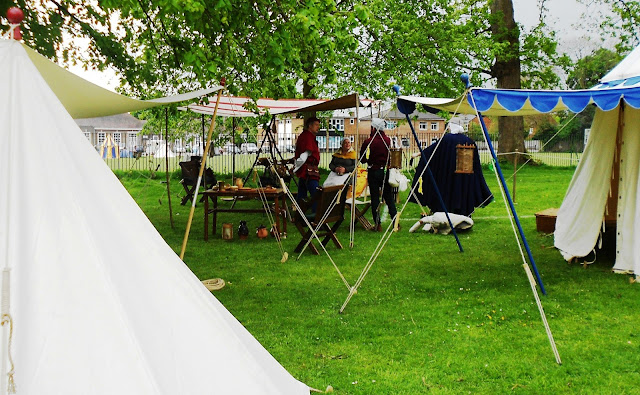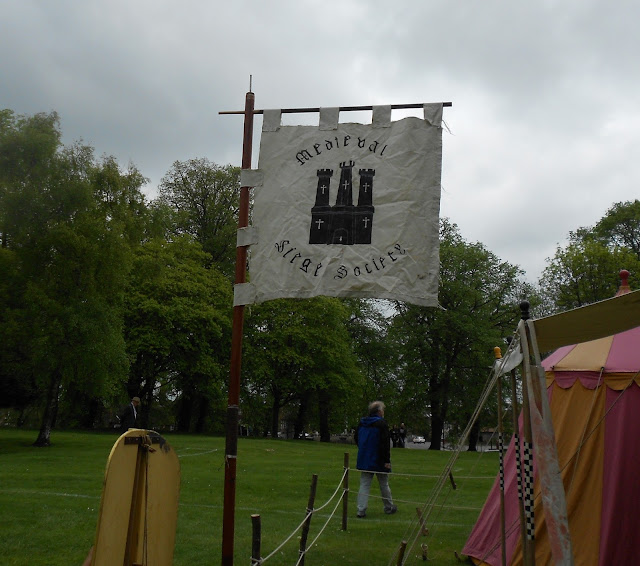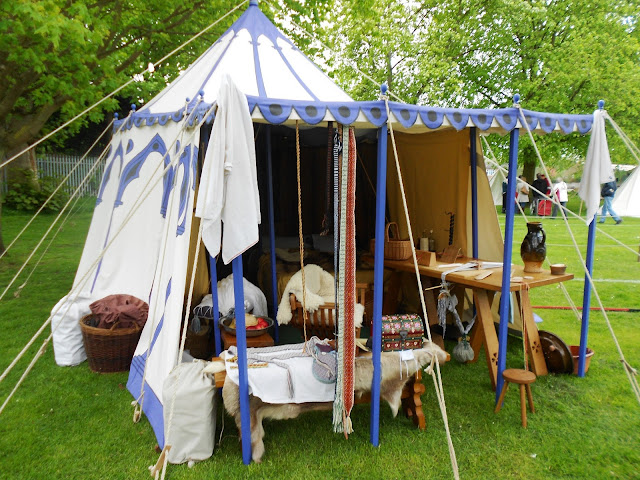Any look at the pubs of Dunstable has to start with the Kingsbury buildings, which are Kingsbury Court a private residence, The Old Palace Lodge Hotel, and the Norman King, currently a ruin. The farm land was at the time most of what is Kingsway, and all the adjoining streets and houses.
King Henry 1st ordered the land to be cleared near the Watling and Icknield junction, as it would be safer for travellers. A Royal Residence was built around 1120, and became known as Kingsbury, it provided a convenient stopping off place for the King and his guests especially when hunting.
Nothing much is known about what it looked like, materials used, or if it was fortified or moated. It is known that Henry stayed here and that he spent Christmas 1122 here with his guest the Count of Anjou. In 1132 the Augustine Priory was founded, opposite his house, he gave most of the manor and the borough to the Priory but not the Palace.
The last King to stay there was King Stephen who spent Christmas 1137 there. Both Henry 11 and Richard 1reserved the Royal House for their own use but did not stay there. In 1204 King John gave the Royal building and land to the Priory. In 1277 the Priors had built their own quarters for Royal visitors next to the Prior's Chambers. Dunstable had been hit by a large fire in 1213, and it may have been destroyed then. Later Kings stayed at the Priory, including Henry V111 until his last visit where he stayed at the Old White Horse.
Not much is known after the 13th century, when it possible became a farm house. It is recorded as a a farm in 1542, and throughout the 17th and 18th centuries. In 1789 Kingsbury Farm was sold to a James Oliver who owned The Sugar Loaf. On his death in 1821, his family lived there until around about 1894. The family tombstone is in the Priory Church yard opposite.
In 1898 Edward Holloway lived in Kingsbury House in 1901-1906, Fredrick Freeman leased the house and out buildings, from Henry Brown a local farmer. Fredrick set up a cab driving business in London starting with one horse and cab, gradually building up to 'hansom cabs' 'Four in Hands', and then Horse Drawn Buses. Fredrick was the Proprietor and Coachman of the 'New Age' long distance coach which ran the 94 miles from London to Coventry via Dunstable. He lost his best horses when they were commandeered for the Boer war in 1899. He left his business with his two sons and moved to Kingsbury House with his second family, until 1906.
Henry Brown moved in and turned it back into a farm. During the 1914-18 war the farm was kept by Redhead Estates Ltd as part of the war effort. Local people would queue for food outside Kingsbury Barn. Later to become the Norman King.
As it stands now, know one seems to know what is happening with it but two years on and with being de-listed the owners need to do something. As much as we loved this lovely building it is now just a sad remnant of what it once was.
 |
| The Old Palace Lodge Hotel a very popular venue especially for weddings |
 |
| The Norman King Dunstable a popular pub |
 |
| Norman King destroyed by fire 10/8/11 It has since been de-listed so will not be rebuilt and we are waiting to see when it will be knocked down. |





















